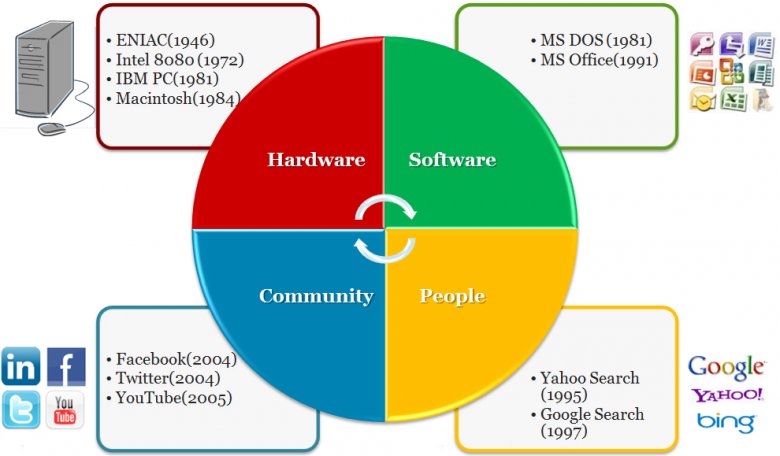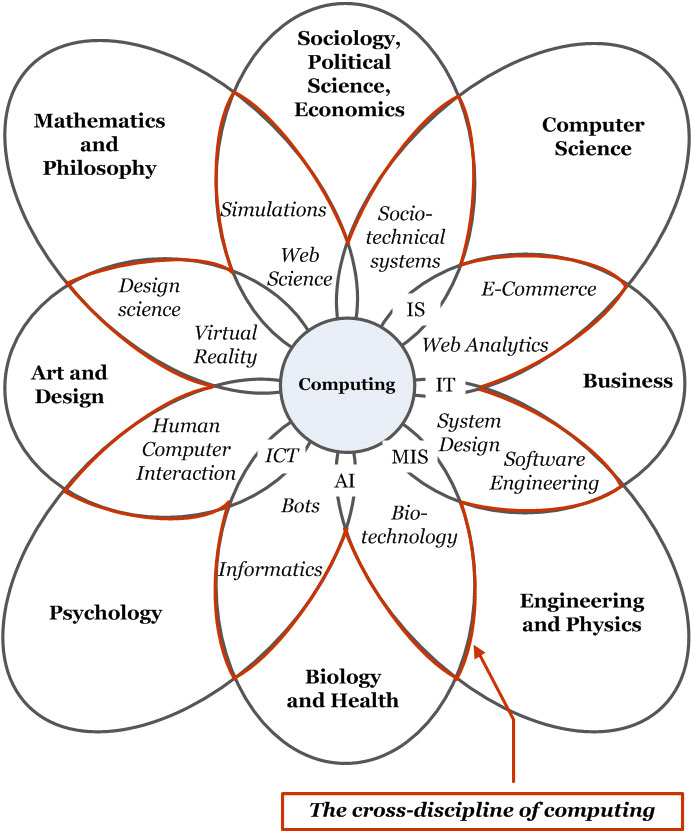
Figure 1.10 shows how computing evolved through the four stages of hardware, software, people and community. At each stage, a new specialty joined computing, but pure engineers still see only mechanics, pure computer scientists only information, pure psychologists only human constructs, and pure sociologists only social structures. Yet the multi-discipline of computing as a whole is not pure, because purity is not the future. It is more akin to a bazaar than a cathedral, as computer practitioners understand (Raymond, 1999).
In academia, computing struggles because academics must specialize to get publications, grants and promotions (Whitworth & Friedman, 2009), so discipline specialties guard their knowledge in journal castles with jargon walls. Like medieval fiefdoms, they hold hostage knowledge that by its nature should be free. The divide and conquer approach of reductionism does not allow computing to prosper as an academic multi-discipline.
In practice, however, computing is thriving. Every day more people use computers to do more things in more ways, but in the universities engineering, computer science, health, business, psychology, mathematics and education compete for the computing crown. For example, health created its own field of informatics, with separate journals, conferences and courses, to meet its non-engineering/non-business computing needs. Computing is the Afghanistan of academia, often invaded but never conquered. It should be the Singapore, a knowledge trade center. The kingdom of research into computing is currently weak because it is a realm divided. It will get weaker if music, art, journalism, architecture etc. also add outposts. Computing researchers are scattered over the academic landscape like the tribes of Israel, some in engineering, some in computer science, some in health, etc. Yet we are one.

The flower of computing is the fruit of many disciplines but it belongs to none. It is a new multi-discipline in itself (Figure 1.11). For it to bear research fruit, its discipline parents must release it. Using different terms, models and theories for the same subject just invites confusion. Universities that compartmentalize computing research into isolated discipline groups deny its multi-disciplinary future. As modern societies federate states and nations, so the future of computing is as a federation of disciplines. Until computing research unifies, it will remain as it is now — a decade behind computing practice.